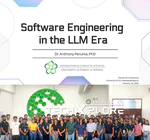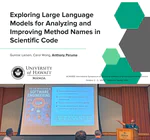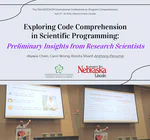Biography
Dr. Peruma is an Assistant Professor in the Department of Information and Computer Sciences at the University of Hawai‘i at Mānoa, where he leads the Intelligent Software Quality Assurance Research & Engineering Laboratory. Dr. Peruma holds a Ph.D. in Computing and Information Sciences, a Master’s in Software Engineering from Rochester Institute of Technology, and a Bachelor’s in Computer Application from Bangalore University, India.
Dr. Peruma’s research is around software code quality and program comprehension, with a particular emphasis on developing tools and techniques to improve the developer experience in implementing and maintaining secure, high-quality software systems. Dr. Peruma has published several papers in leading software engineering journals and conferences on the topic of code quality and program comprehension. In addition to his research, Dr. Peruma is also actively involved in the software engineering community, serving on the program committees of several conferences and regularly reviewing papers for journals in his field.
Additionally, Dr. Peruma also possesses hands-on experience in the software development industry, working on software projects for clients in multiple industries. Dr. Peruma’s industry experience includes consulting, designing, implementation, project management, and sales.
- Program Comprehension
- Software Refactoring
- Software Maintenance & Evolution
Ph.D. in Computing and Information Sciences
Rochester Institute of Technology, New York, USA
Advisor: Christian D. Newman, PhD
M.Sc. in Software Engineering
Rochester Institute of Technology, New York, USA
Advisor: Mohamed W. Mkaouer, PhD
Bachelor of Computer Applications
Bangalore University, Bangalore, India
Experience
Responsibilities include:
- Teaching graduate and undergraduate courses
- Conducting research
- Academic advisor to students
- Participation in department and university committees
Responsibilities include:
- Requirement Analysis
- Solution Architecture
- Technical Delivery Management
- Resource Planning, Management and Development
- Strategic Planning and Client Management
Responsibilities include:
- Technical Design & Modeling
- Information Architecture Design
- Client Liaison
- Lead Reviews
- Team Mentoring
Responsibilities include:
- Requirements Elicitation
- Prototype Development
- Requirements Implementation
- Application Deployment
- Production Support


